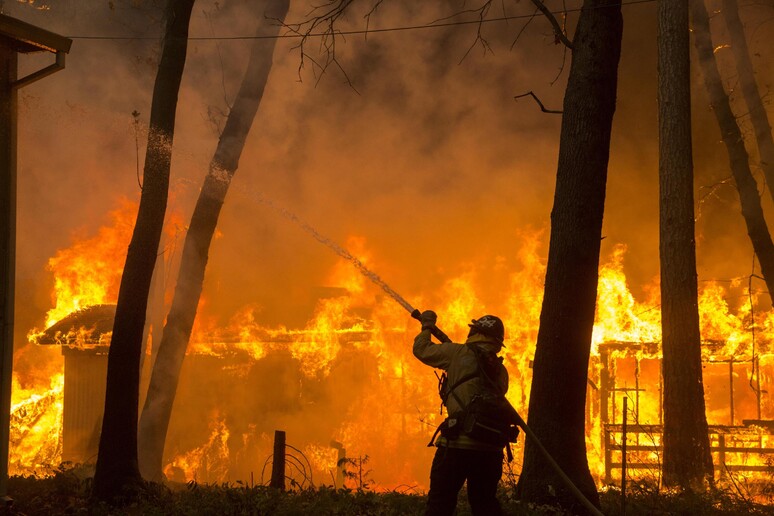While California battles devastating wildfires that have engulfed vast areas of the southern part of the state, a silent army of firefighters works in the shadows. These are not trained professionals but inmates: men and women who face the flames to protect lives and property, earning just a few dollars a day.
According to the California Department of Corrections and Rehabilitation (CDCR), around 400 prisoners are currently on the front lines. Assigned to teams organized by Cal Fire and other local agencies, these individuals earn a maximum of $10.24 per day, with an additional $1 per hour when actively working on fire fronts.
The numbers paint a grim picture: at least 16 deaths, thousands of buildings destroyed, and 180,000 people forced to evacuate. To tackle this emergency, Governor Gavin Newsom has deployed over 4,700 firefighters, including inmates, a vital workforce in combating the flames.
The collaboration between incarcerated individuals and firefighting teams is not new in California. Since 1915, so-called “conservation camps” have offered inmates the opportunity to assist in managing natural disasters, from wildfires to floods. Currently, 35 such camps operate across 25 counties, including two facilities dedicated to women.
Jeff Macomber, Secretary of the CDCR, stated that the work of prisoners is essential in handling these situations. However, the program raises ethical concerns: while participation is voluntary, many activists criticize the conditions and wages, which are deemed inadequate compared to the risks involved.
Currently, over 2.2 million people are incarcerated in the United States, and two-thirds of them are often used as low-cost labor. A report by the American Civil Liberties Union highlights that 76% of incarcerated individuals are required to work without the protections guaranteed to other workers.
Although the 13th Amendment to the Constitution prohibits slavery, it includes an exception for those convicted of crimes, effectively allowing forced labor.
Despite the meager pay, most participants feel privileged to be admitted to the program. Armed with hand tools and limited training, they don’t back down, standing alongside professionals 24 hours a day.












